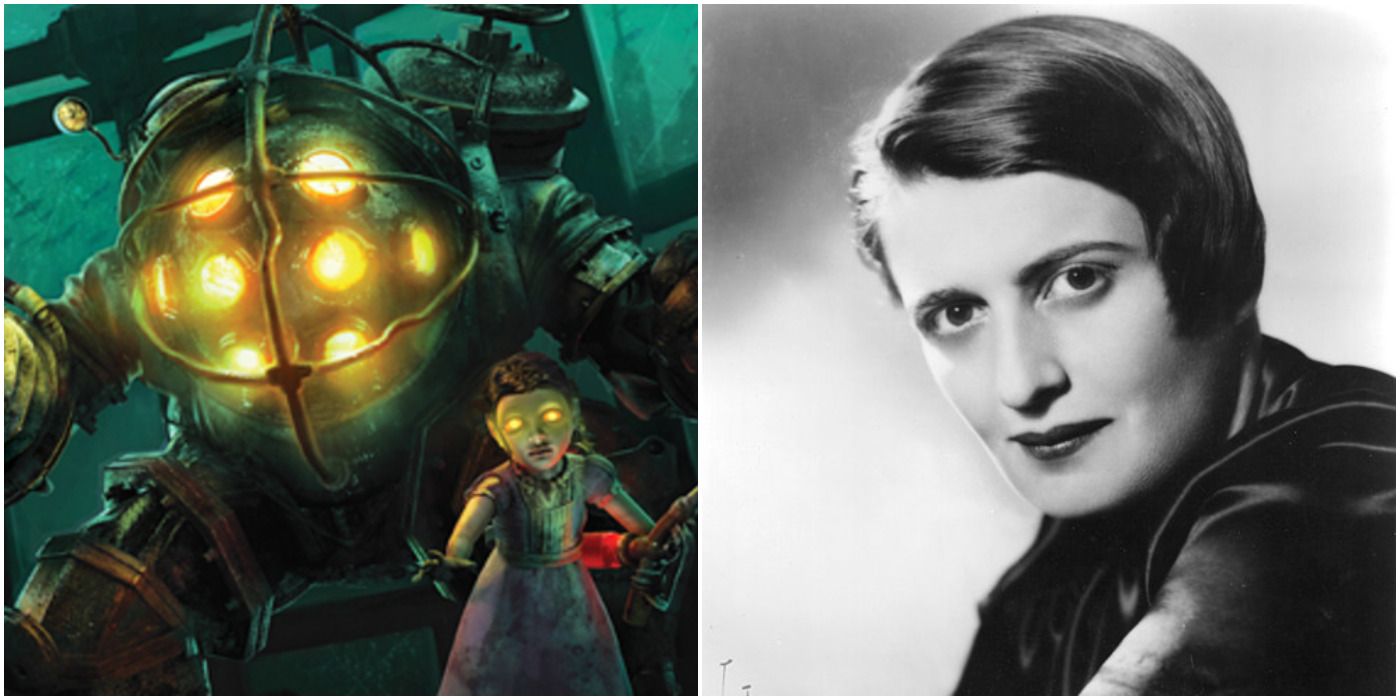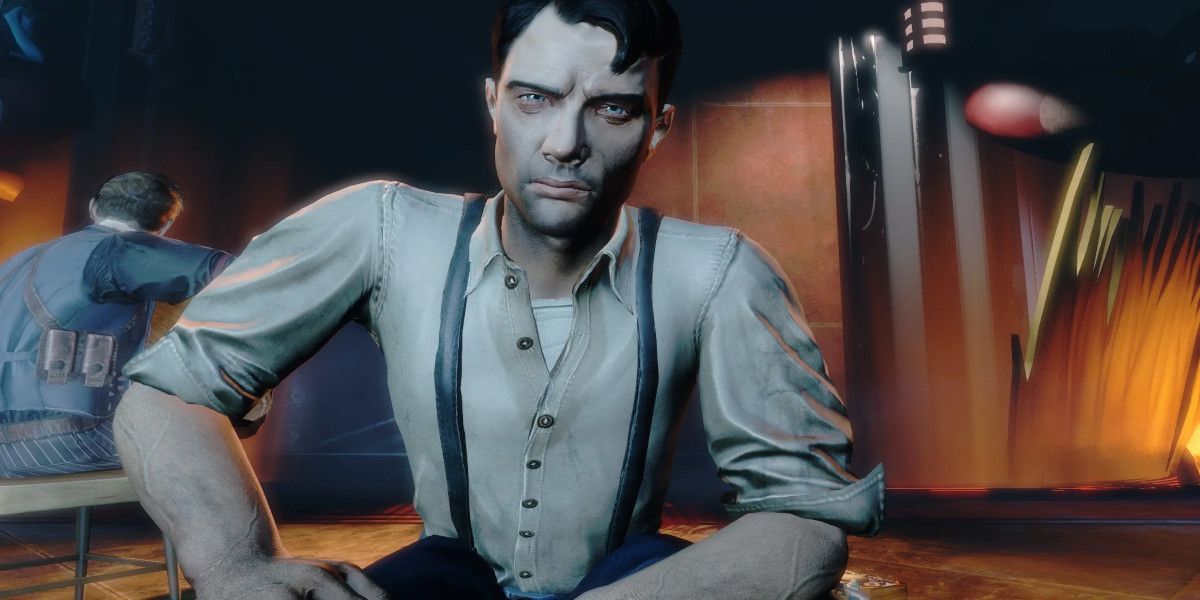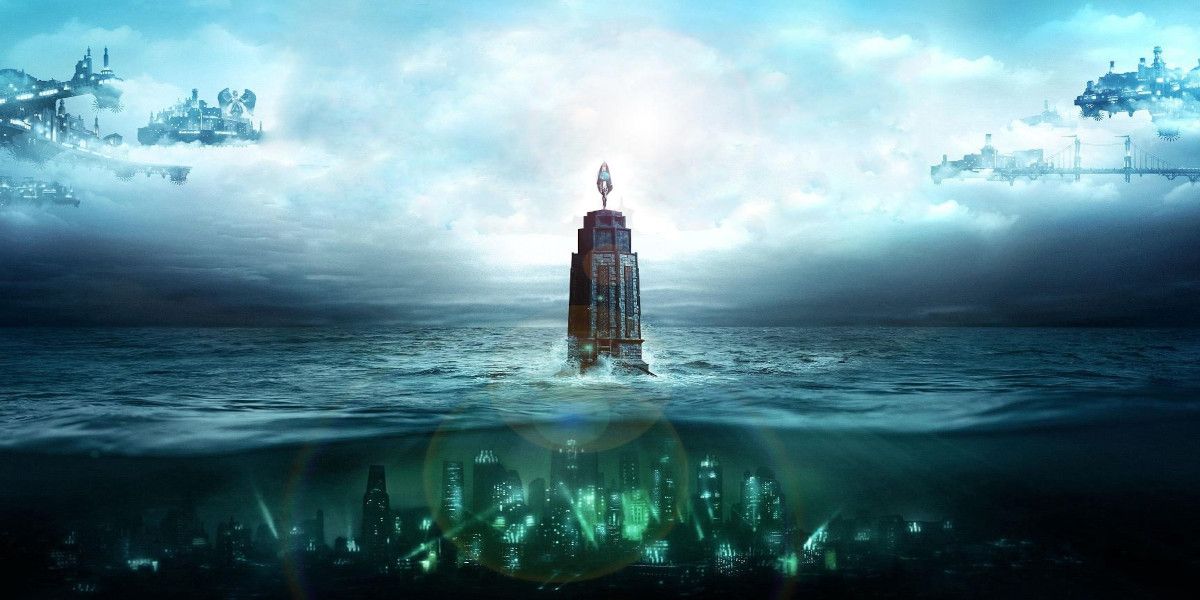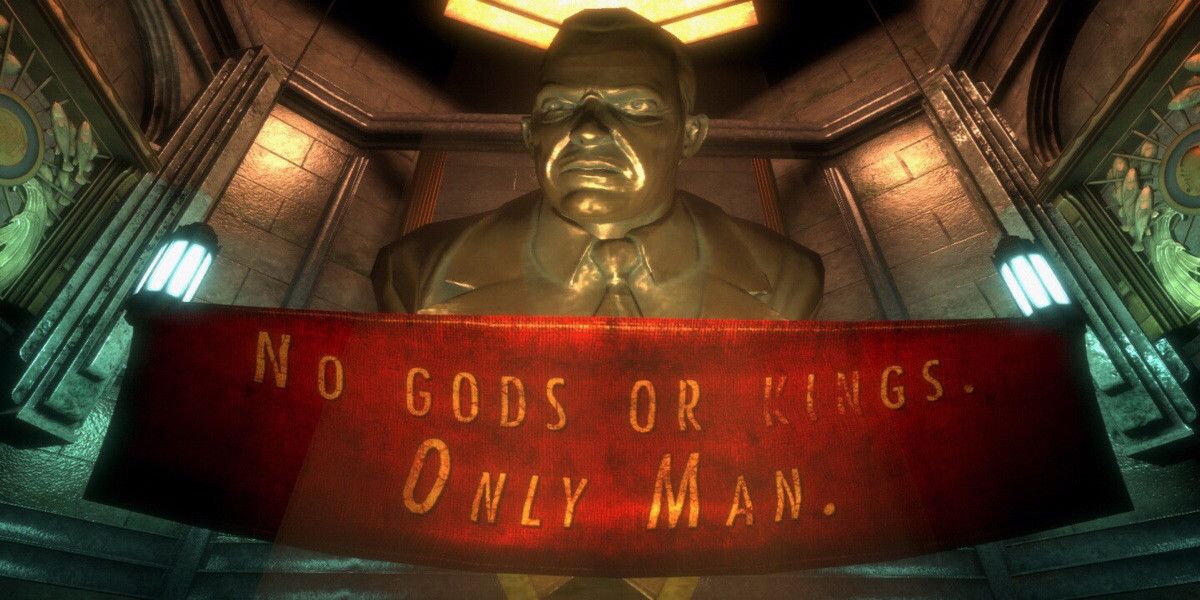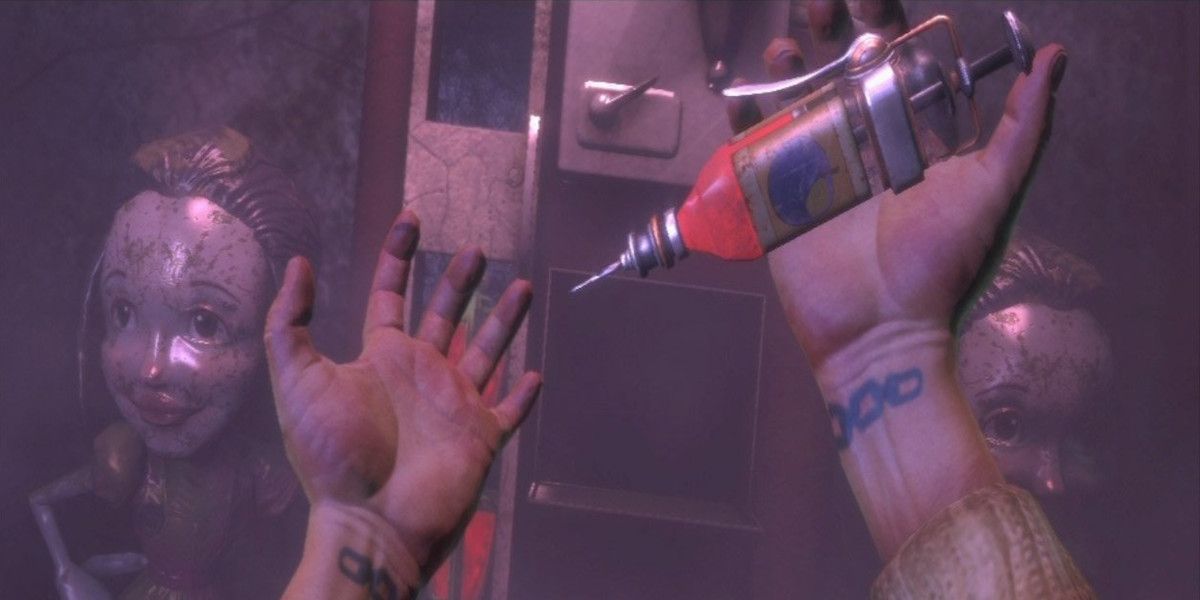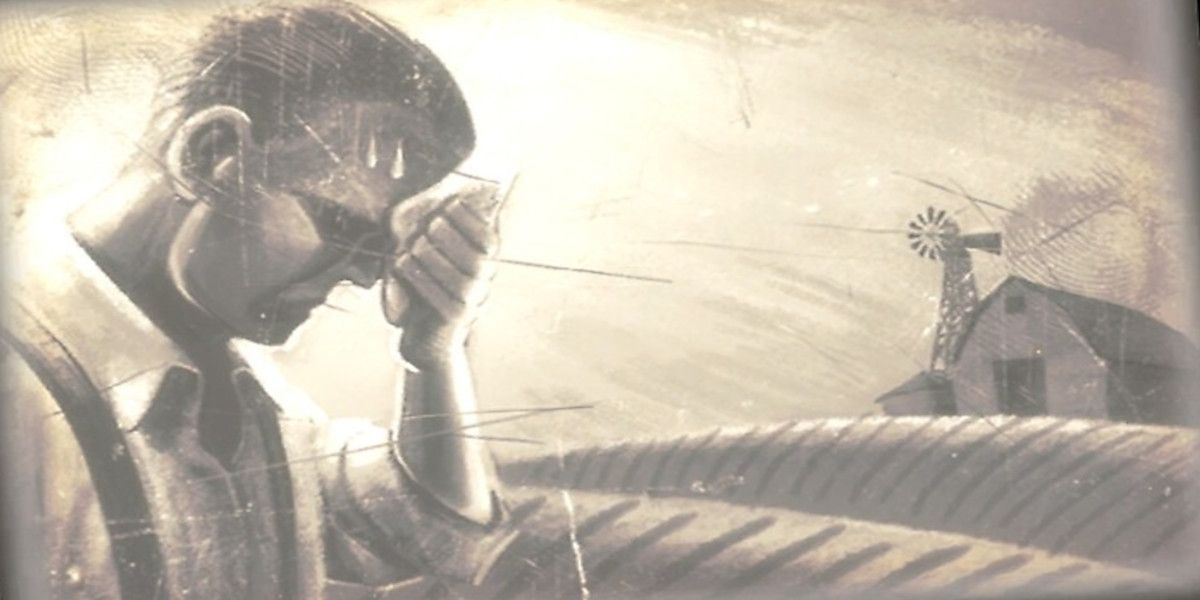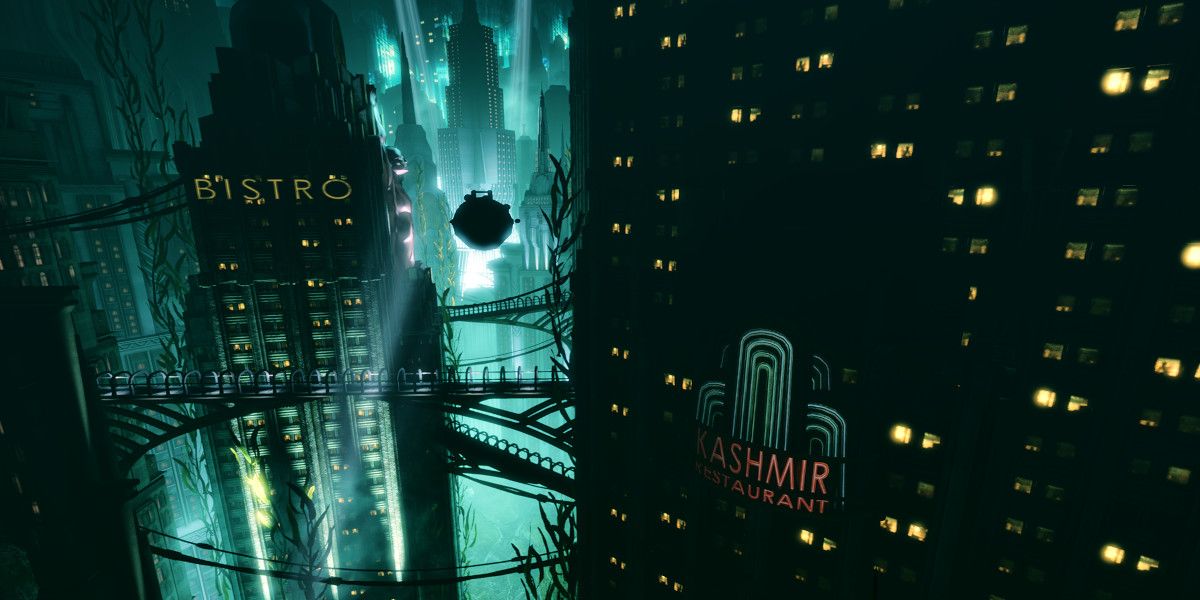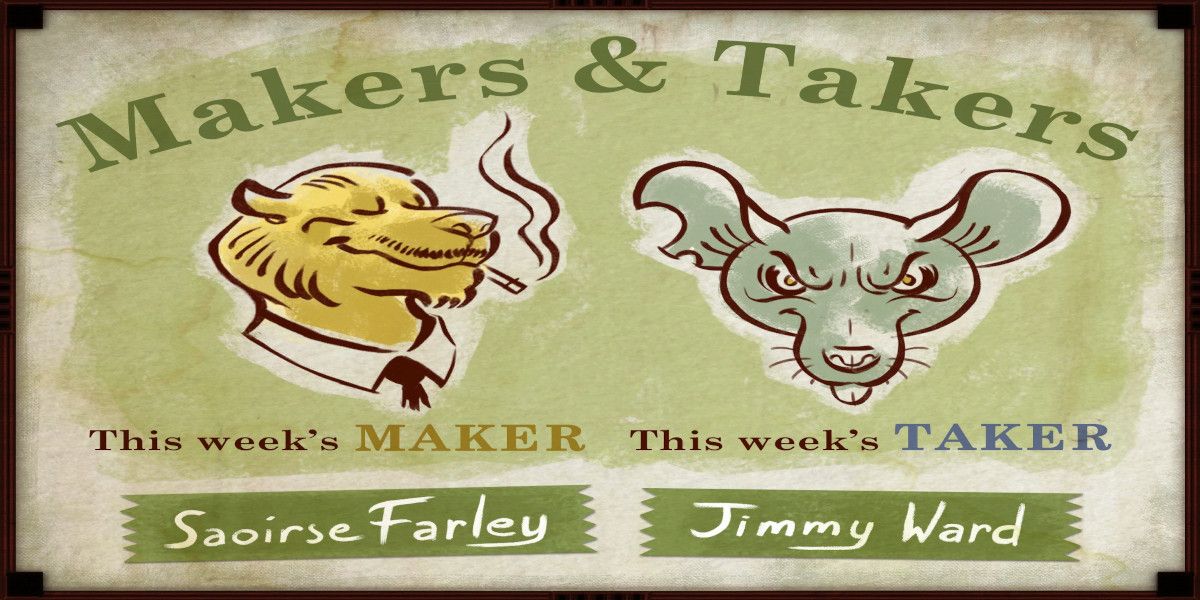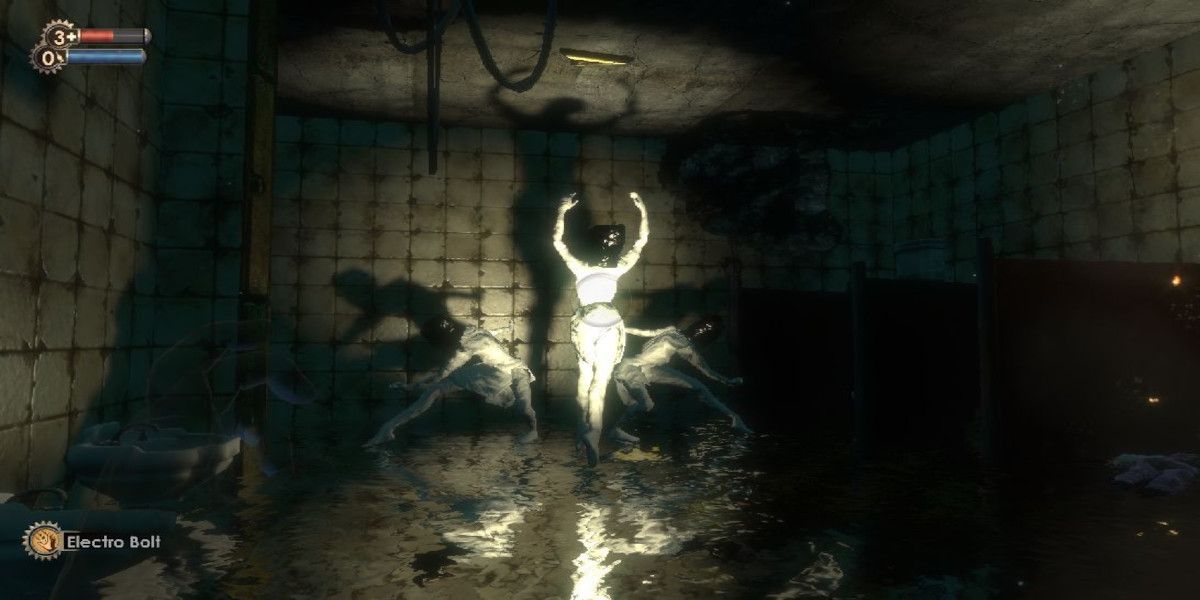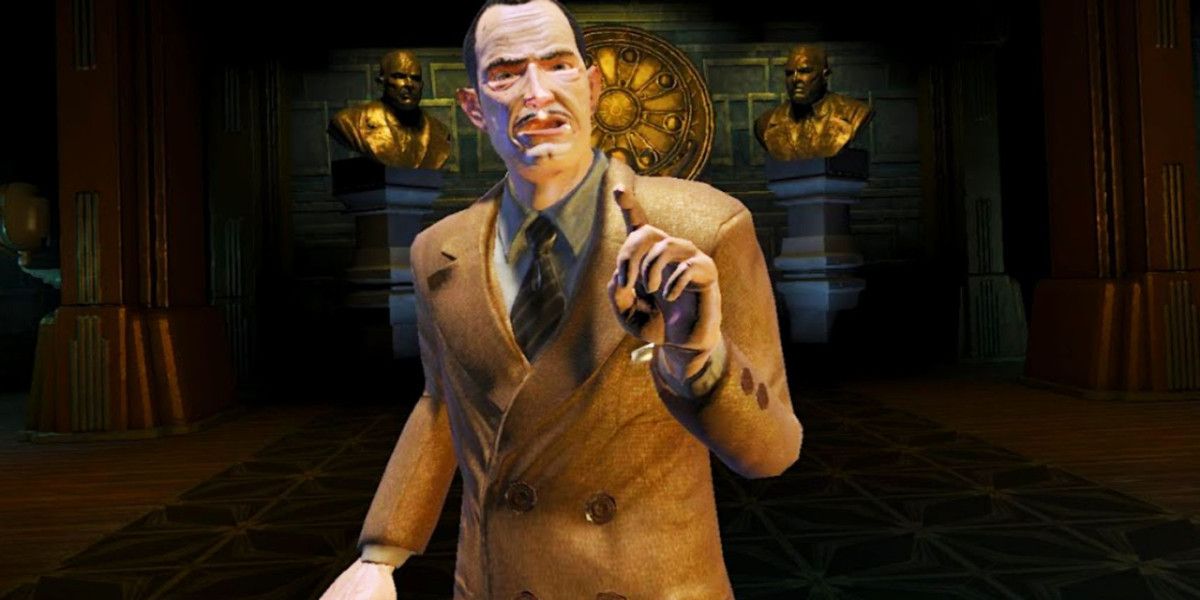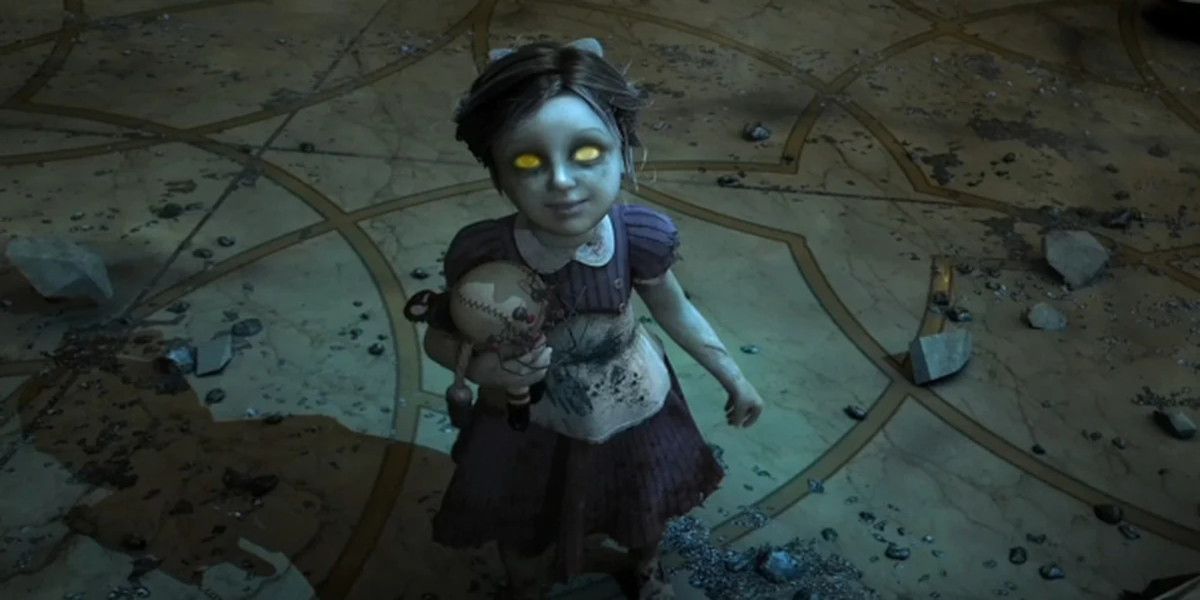Few games ever reach the heights of literary reference that BioShock does. The original has stood the test of time because of its gameplay and innovative setting. While we can't say that everything in the game was about Ayn Rand and what the series wants to teach about a philosophy, players have a deeper experience when they know the author's work. The themes, characters, and even plot devices in the game are a criticism (in an academic and literal sense) of the ideas she unleashed in the 1950s.
However, the page count for the original edition of Atlas Shrugged, Rand's magnum opus, came in at an uber-healthy 1,168 pages. Her nonfiction does not mince words either, so it's understandable if the more intriguing details of what's in BioShock escapes a player. Dig into all that Bioshock truly has to offer by learning a bit more about the inspiration behind the games.
10 "Who is Atlas?"
Ayn Rand uses the phrase "Who is John Galt?" as the central metaphor for Atlas Shrugged. Characters use it as a way to express futility or to dismiss something as unknowable. Beyond the obvious connection between names, the character who drives the plot of BioShock has other parallels with Rand's heroic protagonists.
"Who is Atlas?" posters found throughout Rapture maintain the spirit of mystery from Atlas Shrugged, but it's more of a taunt than in the 1957 novel. While Atlas in BioShock wants to taunt Andrew Ryan, "Who is John Galt?" is more of a sigh than a threat until the end of the book. However, that doesn't mean this isn't a great plot device that creates incredible if unlikely theories.
9 Rapture Is An Underwater Galt's Gulch
Men and women who hold the world on their shoulders abandon a society filled with "leeches" in Atlas Shrugged. Rand's novel suggests that if people like Elon Musk or Bill Gates retreated from public life, the "evil moochers" of the world would burn everything to the ground without "real entrepreneurs" to improve everyone's lives. In other words, Objectivism (the philosophy behind Rand's works) suggests that society needs the rich unless people want to watch everything crumble into dust.
When Andrew Ryan describes why he chose to build Rapture under the sea, it's reminiscent of John Galt telling the protagonist of Atlas Shrugged about his secret mountain retreat. In Rand's world, when takers start oppressing the makers, the latter should refuse to give others anymore of their brilliance. Regardless of the next game's location, fans can only guess what the setting of BioShock 4 will have to say about this topic.
8 No Gods or Kings; Only Man
Conservatives in America have adopted Ayn Rand as a heroic figure, but that number would dwindle if more knew she was an atheist. Some have assumed that the inspiration for the phrase pictured above came from Ken Levine. But it was the intellectual mother of modern Libertarian philosophy who viewed God as an illogical crutch for the weak-minded.
During a national TV interview, Rand literally "tsk-tsked" at the concept of believing in God. After all, when humans are capable of building skyscrapers, what use is there for spiritual intervention? The real heroes worthy of worship in Objectivism create tangible results and don't feel entitled to their success like a king or queen.
7 The Unregulated Plasmid Market
Players are not in Rapture much longer than ten minutes before they get their first plasmid injection. It's easy to understand why anyone can get their hands on these after the collapse. But how could something so dangerous go so unregulated? Even the most hard-nosed capitalists could see that the ends may not justify the profits with this invention, right?
In Rand's style of laissez-faire capitalism, the market decides everything. If someone makes a product that kills people, they won't buy that product, and they'll go out of business. However, we see real-world failures of this concept with items like cigarettes. If someone wanted to sell a product that gave people superpowers on the streets of Rapture, Andrew Ryan would have no problem letting that happen despite the potential ramifications.
6 "Is A Man Not Entitled To The Sweat Of His Brow?"
This famous phrase from the game could have sprung out of the mind of Ayn Rand herself. The philosophy of Objectivism's central tenet is that people make money according to their contributions. In other words, Rand would have suggested that a janitor shouldn't get paid as much as the CEO because he has nothing to do with profitability.
But the author takes that concept to new heights in her most well-known novel Atlas Shrugged. The brilliant minds of the world who make products and take the economy's wheel abandon society because they're tired of people "stealing" their profits. The problem with valuing a person based on their economic value plays out in horrific ways in Andrew Ryan's underwater city.
5 Art Deco Architecture in Rapture
Art Deco architecture heralds back to a golden era of prosperity in America. In fact, that's enough to provide a contrast to BioShock's narrative by itself. However, Rand had so much love for skyscrapers that she made the protagonist of her novel "The Fountainhead" an architect. While that novel didn't sell as well as her next one, there are clues about how Ken Levine frames his vision of Objectivism's endgame in the design for Rapture.
Ayn Rand fled Soviet Russia in 1926 and fell in love with the skyline of New York. Skyscrapers are more than phenomenons of a capitalist society to her. Atlas Shrugged uses steel manufacturing and the buildings created from it as a metaphor for the best of humanity's values and ideals. For Bioshock, the beauty of the buildings belies the terrors within.
4 Makers & Takers
Atlas Shrugged divides society into binary categories: creators and moochers. The former builds innovative products or companies that change how people live and provide jobs to the masses. The latter benefits from the brilliance and successes of others while complaining about their awful lot in life. Setting the merits (or lack thereof) within this context is at least one way to build a dystopia in video games.
The "Makers & Takers" posters found in Rapture mirror Rand's heavy-handed metaphor from Atlas Shrugged albeit in a cuter way. Ryan the Lion is the hero of these cartoons while Peter the Parasite is the most menacing-looking mouse in BioShock history. No matter what metaphor he may have chosen, Ken Levine must have spent time lugging Ayn Rand's novel to and from the office while developing the game.
3 "Someone Is Going To Have To Clean The Toilets"
It's notable that "brilliant" businessman Andrew Ryan allows his underwater retreat for super Republicans to fall apart due to a "working man" antagonist. The player is told during a critical point in the game that "They come to Rapture thinking they're gonna be captains of industry, but they all forget that somebody's gotta scrub the toilets."
While it's easy to criticize Ken Levine's choices as knocking people over the head with a setting as a living metaphor, this subtle moment is possibly the best criticism of Objectivism in the game. For all the posturing about "captains of industry" having a rightful claim to ownership and riches in America, no one can accomplish any of it without someone to clean the bathrooms at the end of the day.
When they get tired of being torn down by their "betters," the result is some version of the political statements about Rapture in BioShock (and we're going to have to learn how to deal with it).
2 We All Make Choices
Andrew Ryan's prophetic and famous warning ties perfectly into Ayn Rand's philosophy. One of the core concepts of Objectivism is that people make money according to their value to the market. If you choose to follow and never contribute, you can't expect to receive more in life than what your choices have brought to you.
This ties in directly with one of the most memorable quotes from BioShock: "We all make choices, but in the end, our choices make us." While BioShock centers around the illusion of choice in a laissez-faire capitalist society that mutated, Rand focused on socialism as the thief of humanity's noble ambitions. Taking the central tenets of Objectivism and providing a critique of it was the perfect device for literary criticism within the plot.
1 The Treatment of Children
Children make an appearance in Ayn Rand's work, but that's the extent of their interaction with adults. After establishing a world of makers and takers in a novel like Atlas Shrugged, there's no room left for considering how to raise a child in her philosophy. The Simpsons even provided commentary on this phenomenon in Rand's work in Season 4 Episode 2, "A Streetcar Named Marge."
While no one goes so far as to call children looters or moochers, it's notable how little a group of humans is dealt with in Ayn Rand's fiction. One can argue that she only mentioned or used children for whatever value they could bring to the equation. In Rapture, that math gave us the Little Sisters and their half-frightening, half-adorable relationship with the Big Daddies. It was so important to the creators that they wanted to have gamers play as a Little Sister in BioShock 2.

